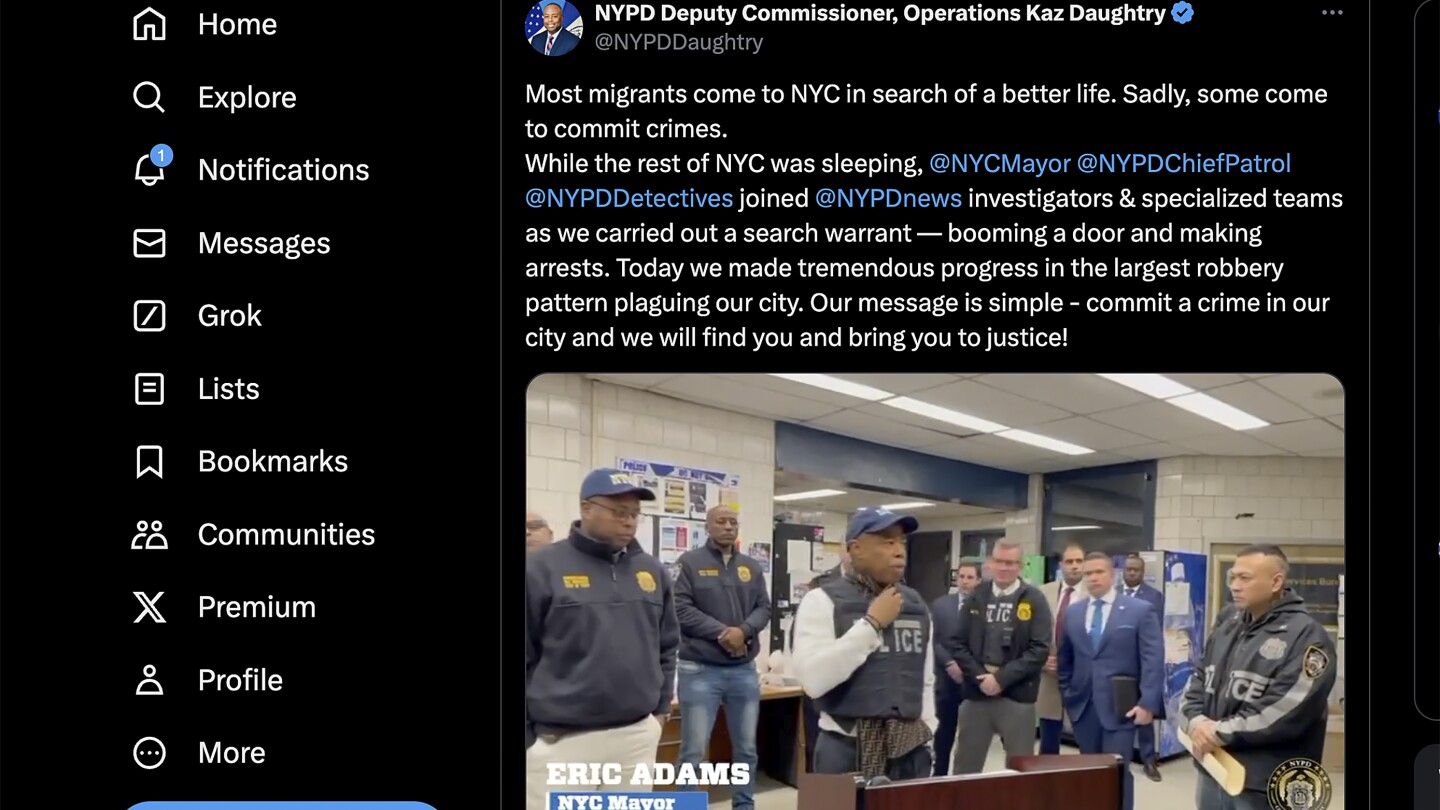Michael Hallett, a professor of criminology at the University of North Florida who studied the effects of “Cops,” said he viewed the NYPD’s forays into social media as a natural response to a digital media ecosystem that rewards speed and sensationalism.
The proliferation of body-camera footage and, increasingly, drones, have made it easy for police to create their own reality series, free of delays imposed by the TV gear and network schedules, he said.
“They now have a proactive and sophisticated messaging system that is designed and intended to deliver messages on behalf of the police agenda,” Hallett added. “In the negotiation for control of the message, that gives them the upper hand.”



Having a “top spokesperson” in the first place is part of what’s being criticized, Tarik.